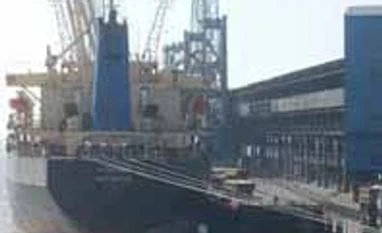Nearly 35 per cent of the world’s ship-breaking business is handled at Alang. The latest mishap took place after a fire broke out due to a leaking gas pipeline in the ship — an event that could have been easily avoided if all such pipelines inside the ship were removed according to laid-down procedure before the ship was broken.
Ship-breaking yards, in fact, need a decontamination certificate from the Gujarat Maritime Board, as well as environmental clearance from the state’s pollution control board before breaking a ship, after ensuring all oil has been removed from the tanker and the pipelines dismantled. Information on the “last cargo” on the ship has to be gathered for safety purpose; in case it was a hazardous commodity, extra precaution should be taken.
“No inspection is done by the authorities to grant such permission, and most yards don’t want to waste time in such formalities. Breaking begins as soon as a ship reaches the yard,” a senior executive of an iron scraping association said.
It is also recommended that pipelines in ships be removed using cold-cutting tools instead of cutting the metal using gas, which is a dangerous albeit time-saving process. For an industry working on thin margins of four to five per cent, the faster option is always the more viable one.
According to local officials, no checks — in terms of its registration, ownership documents, etc — are done before a ship comes to dock.
Not only this, according to local officials, no checks are done before a ship comes to dock in terms of its registration, ownership documents, etc. Alang, once a desolate dot on the Gujarat coastline, is arguably the world's most famous graveyard for ships, a repository for much of the world's navies and merchant lines. "Asian yards, which recycle 9 out of 10 ships, dominate the industry because of less stringent environmental regulations, advantageous location and availability of cheap labour," a recent report by Crisil Ratings said.
Over 1,000 ships have been scrapped in the shipyards of Alang in the last three years. The ship breaking companies high on their growth prospects are more concerned with problems of rupee depreciation and negative publicity that the place has garnered than the "collateral damage" which takes place in the process. One of the site owners even says that India's growth story in the sector has not gone well with the western world.
The Supreme Court more than a decade ago prescribed guidelines for the yards. In fact, a 2013 notification of the steel ministry codifies the process by which ship breaking should take place. While making a distinction between ships of special concerns and general concerns, process of handling is prescribed in the notification, but on the ground nothing has changed in Alang which is breaking more than just ships on its shores.
)